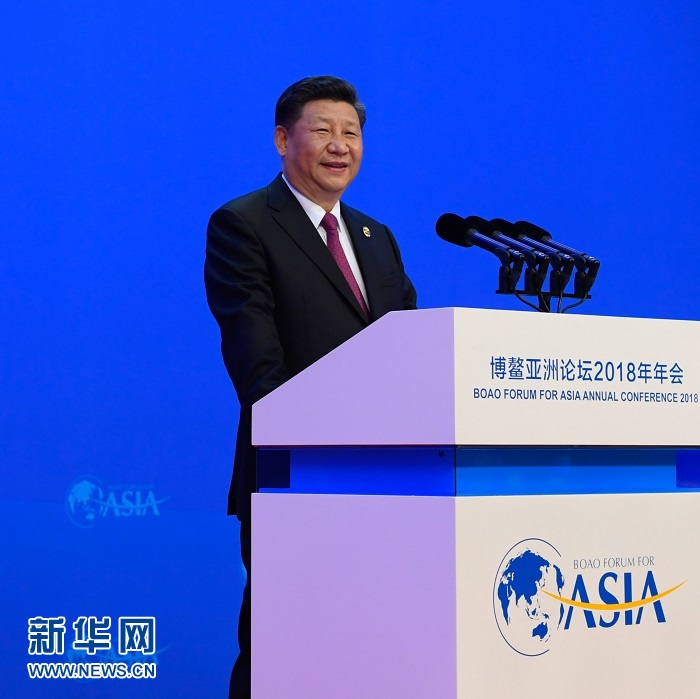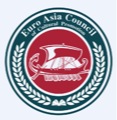Ladies and gentlemen, dear professors,
It is a great pleasure to be here to discuss with you about a theme that I, as a lawyer, as a Minister of Justice and as a citizen, feel greatly attached to: the rule of law.
I studied law at the University of Helsinki. In 2012, the Finnish Center of Chinese Law and Chinese Legal Culture was established in Helsinki to promote mutual legal research between our countries. The Center has built strong connections with CASS Law Institute and several Universities as well as with many other major Chinese academic institutions.
Actually, CASS is the Finnish China Law Center’s key partner in China and has contributed significantly to deepening Sino-Finnish China legal research. A notable joint international research project has been conducted in the field of labour law. Other research collaborative projects between CASS and Finnish institutions have covered intellectual property rights, law and gender and climate change. These are important priorities also to our government. I am very happy to acknowledge that my former professors of faculty of law in Helsinki University have so actively engaged in Finnish-Chinese academic cooperation.
The rule of law is the core foundation of a modern society. It is the very backbone of Finland as well. Finland celebrated the 100th anniversary of its independence on 6 December 2017, and the festivities gave me an excellent opportunity to look back on the times when my country gained its independence: it was the respect for law and legality that paved our way to independence. Since the very beginning of the independent era, the rule of law has been enshrined in our constitution. Therefore, it is for a good reason that the rule of law was one of the key topics discussed during the year of Finland’s 100th anniversary. Several events were held where we discussed how the rule of law could be ensured in our country also in the future and how we could enhance the respect for it. Today, the rule of law still continues to be a highly topical matter in Finland.
As a matter of fact, this is true also at international level. Promoting the rule of law and ensuring equal access to justice for all is one of the 17 UN Sustainable Development Goals that aim to transform our world.
What does the rule of law actually mean? Globally, the concept of rule of law does not have one mutually agreed meaning. Instead, states’ interpretation of the rule of law varies, which can be explained by historical, political, social and institutional differences between states. Your exact understanding of the concept probably differs from what I have come to understand. There is not a single, consistent understanding of the concept in Europe either. That does not, however, prevent us from discussing the importance of the rule of law.
Even though the exact understanding of the concept varies across the world, there is a widely accepted common agreement on the most central elements of the rule of law. Those elements are endorsed by the international organisations such as the United Nations, the Council of Europe and the European Union.
As you very well know, the rule of law is a multifaceted and complex concept, but I still would like to discuss some of its core elements next.
First of all, the rule of law is about legality. This means that a state and its institutions are bound by the law – any government is not allowed to act outside the law when pursuing its goals. The rule of law is not the same as rule by law. The state and its institutions must act in accordance with the law. Legality also means that the procedure for enacting laws must be transparent and accountable.
Secondly, the rule of law requires legal certainty. In order for this requirement to be met, it is vital that citizens and businesses have easy access to laws. All laws should be published and written in a way that enables citizens to understand the contents of the law.
The third element of the rule of law I would like to mention is the independence of judiciary and citizens’ effective access to justice. An independent judiciary is a key element of the rule of law and plays a key role in upholding the rule of law.
Let me also say a few words about the role and functions of lawyers and attorneys. I would like to emphasise that access to justice is a universal and fundamental right that is protected by international instruments and constitutional provisions. The freedom of lawyers and attorneys at their work, as well as their independence, is one of the fundamental human rights.
Respect for the rule of law should not be taken as granted. It requires monitoring and there is always room for improvement. Society is changing constantly and these changes may bring about new challenges for the rule of law as well. Strong pillars of the rule of law help deal with new, unpredictable challenges or even a crisis. However, this also means that we might have to think about new ways to ensure that the rule of law is always and in all circumstances fully respected. Let me share a few examples with you from Finland and from the European Union.
Last autumn, I launched a reform of the administration of justice in Finland. I believe that the separation of state powers requires strong independence of the judiciary, and therefore, in my opinion, the Finnish system calls for reinforcement in this regard. Today, the Ministry of Justice is responsible for certain operative tasks of court administration. The aim of the reform is to improve the independence of the judiciary by setting up a new independent national council for the judiciary. The tasks related to the administration of courts will be transferred from the Ministry of Justice to the new independent agency. In addition, we are currently reforming the procedural law in general courts. The aim of the reform is to make legal proceedings more effective without compromising the legal safeguards. This may be achieved, for example, by making wider use of videoconferencing possible in legal proceedings.
I am convinced that this reform will enhance the rule of law in Finland.
The other example deals with access to justice. In Finland, when it comes to public legal aid, the desired state of affairs is that every person receives the aid necessary to solve his or her legal problem at the earliest possible stage, regardless of the person’s economic situation. The objective is that all citizens have easy access to legal advice services through various channels. These channels include different forms of online counselling, electronic services, distance services, a telephone service and personal consultations. These channels include different forms of online counselling, electronic services, remote services, a telephone service and personal consultations. The more advanced online booking system and the chat service through which lawyers and other staff of public legal aid offices can provide general legal advice and guidance for citizens can be mentioned as concrete examples of the extended multi-channel service provision.
The European Union is founded on the rule of law. The Treaties which establish the Union confirm this, and the respect for the rule of law is a prerequisite for EU membership. Cooperation within the Union would not be possible if this requirement was not met. The European Union consists of independent and sovereign countries, but cooperation within the Union goes much further than in any other international organisation. The EU is based on the idea of free movement of persons, goods, services and capital. There is a huge amount of interaction between the EU Member States, state authorities, individuals and companies, covering a wide range of policy fields. The respect for the rule of law makes all this possible.
Judicial cooperation is one of the central policy fields in the EU. A number of legal issues follow from the fact that persons, goods, services and capital move freely between the EU states without any internal frontiers. Hence, there is a need for effective judicial cooperation. In the EU, judicial cooperation between the courts and other judicial authorities is based on direct contacts. A judgment given in one EU state is directly recognisable and enforceable in another EU state. This means that a judgment given by a Finnish court in civil and commercial matters or, in many cases, also in family matters will be recognised and enforced either directly without any intermediary procedures or otherwise in a quick manner in all other EU Member States. The EU cooperation in family matters covers issues such as divorce, child custody, international child abduction, maintenance, successions and wills. In addition, judicial cooperation in criminal matters between the EU states is based on direct contacts between the authorities. This enables effective procedures.
For mutual trust to exist, the rule of law needs to be fully respected in all Member States of the Union. A judge who is asked to enforce a judgement given in another Member State needs to be able to trust that the judgement was given by an impartial and independent court where fundamental rights of the parties were respected. Similarly, it is vital for the parties to be able to trust that a judgement for which they are seeking enforcement in another EU state will be executed in accordance with law.
Any threat to the respect for the rule of law within the European Union could hinder such cooperation. Therefore, the EU has developed new means to ensure the respect for the rule of law in the EU. The heads of state and governments have in recent years paid more attention to the rule of law in the EU. Thus, the rule of law is being discussed at the highest political level of the EU.
Member States can now together identify new challenges that are posed to the European states and exchange best practices to promote and ensure the rule of law. New challenges may originate from a variety of sources. In recent years, Europe has faced challenges not only with the enormous migratory flows to Europe but also with hate speech and fake news, which form the reverse side of the positive technological developments and digitalisation. New technologies improve our lives in many ways and the social media provides new opportunities for communication with people around the world, but they can also bring about negative side effects. Fake news and hate speech are easy to spread in social media. These issues have brought about new concerns, also as regards the rule of law. These concerns need to be addressed, and this must be done in cooperation with other states. The annual rule of law dialogue at ministerial level helps to ensure and enhance the rule of law in the EU.
Lastly, I would like to highlight an aspect of the rule of law’s influence which is not always recognised: its implications for the economic growth. For business, legal certainty and effectiveness of the judiciary are vital. Various international studies show that there is interrelation between justice and competitiveness. Well-functioning, stable and predictable justice systems play an important role in determining economic performance and in boosting investments. Protection of property rights and enforcement of contracts encourage savings and investments but, at the same time, they also promote the establishment of economic relationships and have positive impacts on the development of economic growth and innovation. Businesses need to know that their rights are enforced and their cases dealt with by impartial courts. Effective justice systems create confidence and business-friendly environments. The impact of the rule of law on the economic growth further underlines its great importance.
I have understood that the new Supervision law in China, which is announced in 2017, could go into effect as early as March 2018. If it is enacted, the law will create one organization, a hierarchy of “Supervision Commissions,” to investigate and punish extra-legally, would have an authority to pass an extrajudicial investigation and punishment without formal court proceedings, not only Party members, but also many millions of non-Party-members who work as state employees across a wide range of professions and positions. Maybe you are able to elaborate this. Do you think that the adoption of the new law would mark a significant departure from the separation between the Party and the justice system?
As a matter of fact, according to the agreement between the Ministries of Justice of China and Finland, the aim of our cooperation is to strengthen the rule of law, and more specifically, to enhance access to justice, promote crime prevention and develop our judicial systems. The cooperation started as early as in 1995. Open dialogue, expert seminars and exchange of information on the crucial and central questions of the respective legal systems have been at the core of the Cooperation Programme at all times. As a result of this cooperation, a number of recommendations and proposals for development have been produced. We have agreed that the cooperation between our countries during the period from 2017 to 2020 will focus on legal aid and advice and on the development of community sanctions.
The relations between Finland and China are excellent are are being elevated to new level with the established “Future oriented new type of cooperative partnership” which was agreed during President Xi’s visit to Finland in April.
Ladies and gentlemen, dear professors,
I hope that I have managed to demonstrate to you how important I think the rule of law is for a modern society, for international relations, for cooperation between the states, for businesses, and for each and every citizen.
Thank you for your attention!










































